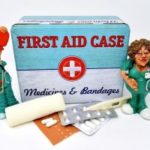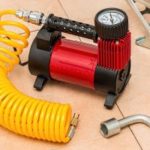Cross-country road trips are enjoyable. Driving with family and close friends, chatting, listening to music, snacking, and having the best time together are common memories. Even though numerous individuals look forward to these trips and plan to execute them at least once a year.

Source: Pixabay
Planning a cross-country road trip should be fun, but selecting destinations, booking hotels, and planning activities can overwhelm even the most organized traveler. However, with a bit of forethought, the results can be spectacular.
Whether all of your attention is focused on what you’ll do once you arrive at your destination or emphasize the cross-country road trip, preparing the vehicle is an important aspect that is frequently overlooked in the planning process. Even the most detailed travel itinerary will not save a car from a lack of routine maintenance. Therefore, it is critical to ensure that routine and other preparatory maintenance procedures are completed before embarking on a road adventure.
Another frequently overlooked aspect is preparing for the dangers that may arise unexpectedly while traveling on unfamiliar paths. Whatever your destination, prepare the vehicle that will take you there and back. Here is some of the equipment you should have in your car to go on that road trip.
1. Medical Care Kit
In a medical emergency, the priority is to address the problem as soon as possible. On unfamiliar roads during an emergency, one’s chances of receiving immediate medical attention are slim. That is when a medical care kit comes in handy, as it assists you in stopping the bleeding or temporarily relieving pain. It helps buy time so that the medical situation does not worsen and the patient can be taken to a doctor or vice versa.
As a result, carrying a medical care kit on a road trip becomes even more critical. If you encounter an emergency on your way to your destination, your medical equipment may also be helpful to others.

Source: Pixabay
2. Bow Shackles
No matter how well-prepared you are, serious problems can arise, especially if there are time constraints on getting a vehicle unstuck. There are numerous scenarios in which you may be forced to rush a 4×4 vehicle recovery, including a rising tide or a looming storm. Bow shackle, also known as anchor shackles, have a rounded body that allows side loading and flexibility from various angles.
Due to limited space, a bow shackle is ideal in a recovery situation where the towing vehicle must come in from an angle other than straight on. Bow shackles, in general, provide a greater range of movement with a greater capacity for angular tension, which can be beneficial for trailer towing. A bow shackle can come in handy during unexpectedly tricky times on a road trip.
3. Paper Maps
We all use our smartphone’s map apps and vehicle integration features while on the road, but technology is not without flaws. To digitally rely on pathways during cross-country road trips is a risky business. Thereby, paper maps can serve as a safety net. Paper maps are inexpensive and extremely useful on a road trip.
Having a birds-eye view provided by a physical atlas is useful when making road trip decisions. Traveling with a paper map is an excellent way to prepare for a disaster on your road trip. You may be unaware of a particular location in a new country. Having a paper map available for your road trip provides flexibility and insurance.
4. Roadside Assistance Kit
An emergency roadside kit is critical. Do not embark on a road trip without one, even if you are not driving your car. Even in those cases, you should still have emergency supplies when renting a car.
Moreover, rental vehicles will come standard with a basic kit that includes a spare tire and jack, flares and reflectors, and the vehicle manual. However, you can quickly improve your preparations by stopping at a store and making sure you buy these things before you get on the road, which includes:
- Flashlight.
- Backup phone charger.
- Non-Perishable snacks.
- Water for the vehicle’s engine.
- Drinking water.

Source: Pixabay
5. Air Compressor
Your tires are in constant contact with the road and are the most vulnerable to hazards. Having a compressor for tire-related issues is extremely helpful, especially when driving in remote areas. These little gems come in a variety of quality and capability levels. So, when you’re on the road, it’s not a good idea to skimp on quality; always look for trusted brand names.
6. Legal Documents
According to each country’s motor laws, every car must carry certain documents if it is used on public roads. While it is not a legal requirement to keep, it will save you from future headaches. Just keep the photocopies of your documents, including your car’s registration certificate, certificate of insurance for your vehicle, and driver’s driving license.
7. Comfort and Convenience
Aside from bracing for the worst, it would be best if you also braced for a period of comfort and convenience. Sitting idly in a car for extended periods may become tedious for some. Travel games, an aux cable, books, a camera, a travel pillow, and a comfy blanket to sleep soundly are a few things to stock up in your car to make the cross-country road trip less boring.
Conclusion
To conclude, ensure your car gets a routine check-up to have a good time with your loved ones. A cross-country road is fulfilling and enjoyable only if the vehicle you’re traveling in is convenient and smooth to drive.









 The 2024 virtual Men’s Round Table will be held Q4, 2024, date TBD.
The 2024 virtual Men’s Round Table will be held Q4, 2024, date TBD.













